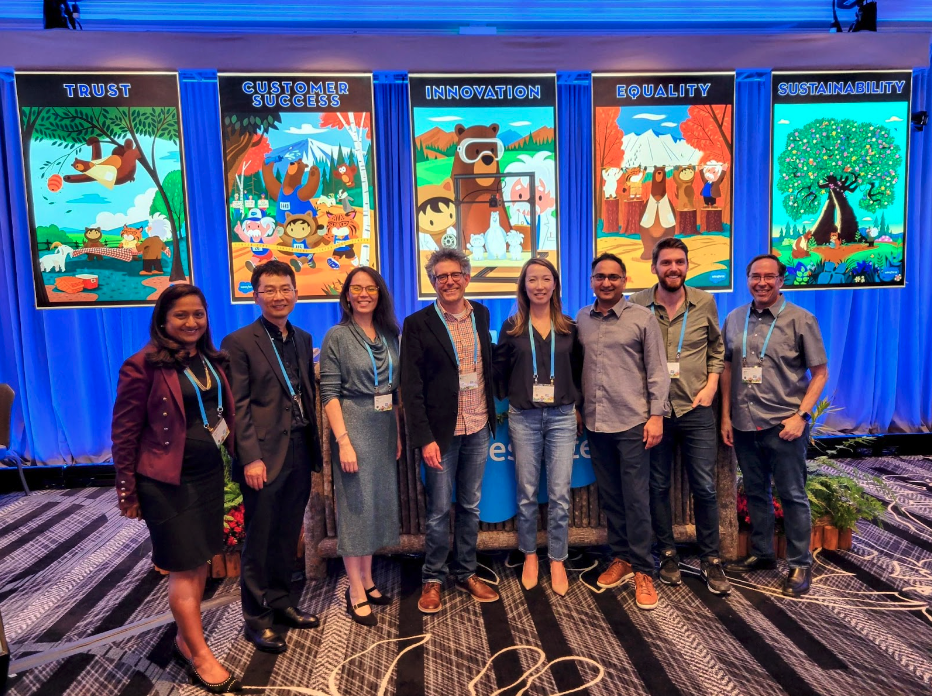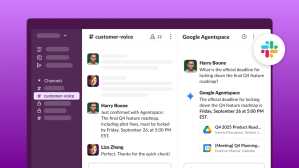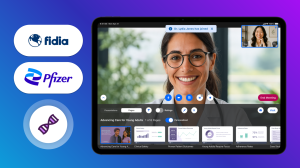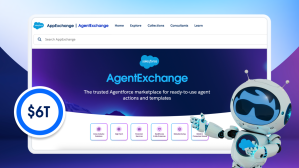Editor’s Note: AI Cloud, Einstein GPT, and other cloud GPT products are now Einstein. For the latest on Salesforce Einstein, go here.
Breakthroughs in generative artificial intelligence have the potential to bring about sweeping changes to the global economy. In fact, Goldman Sachs research believes that new developments in AI could drive as much as $7 trillion in global economic growth by 2030.
To unlock new opportunities and achieve that growth, companies must develop a clear AI strategy aligned with their business objectives, safely implement it, and drive results. For many businesses, that’s an intimidating undertaking.
We recently met with Clara Shih, newly named CEO of Salesforce AI, to talk about her new role, how companies can prepare for generative AI, and how Salesforce is leading customers into an AI future.
Q. Since ChatGPT launched last November, generative AI has taken center stage, and every company is now thinking about what it means for their business and industry. In your newly-created role leading Salesforce’s AI efforts, what are you focusing on first in this new era?
Salesforce is not new to generative AI. Our research team has been working on large language models for several years and pioneered prompt engineering in 2018. I’ve been leading Service Cloud, our portfolio of customer service technologies, and we have a tremendous foundation of AI expertise to build on. Salesforce has more than 1,500 machine learning engineers and data scientists across the company, and AI infused into every product, delivering over a trillion AI predictions every week for our customers.
We have a tremendous foundation of AI expertise to build on, including 1,500 machine learning engineers and data scientists across the company, and AI infused into every Salesforce product, delivering over a trillion AI predictions every week for our customers.
Clara Shih, CEO, Salesforce AI
As I transition to advancing and accelerating our AI solutions across the company, I’m focused on three areas:
- First, delivering generative AI that is ethical, responsible, and safe for customers. Almost every customer we meet with is concerned about leaking sensitive company data, leading many CIOs to block employees from accessing ChatGPT. They want to balance value and risk in their approach to generative AI, and that’s important. Salesforce has a real advantage when it comes to data security – nearly 25 years ago, we pioneered how to securely put data in the cloud. Our architecture is designed for this, and customers trust us to keep their data private and safe.
- My second area of focus is delivering business value from AI. We ask ourselves daily, “What are our customers’ operational bottlenecks and pain points we can solve with AI?” For example, in marketing, it’s using AI to identify audience segments and auto-generate landing page images and copy. In sales, it’s summarizing key account changes and auto-generating prospecting emails that compel customers to open and respond. In customer support, it’s auto-generating case summaries and knowledge articles following a successful issue resolution. And for developers, it’s auto-generating test cases, comments, and even the code itself. The business value comes from driving efficiency as well as consistently higher quality by augmenting every employee at every turn.
- And third, I’m focusing on how we drive long-term transformation. We completed a pilot recently where a team of customer service agents assisted by our generative AI models were able to become highly skilled salespeople. The AI augmented these employees with in-the-moment, contextually relevant knowledge to do the best work of their careers. We are also prototyping generative enterprise search, autonomous agents, and more to help drive bigger long-term transformations for our customers.
Q. We often hear data mentioned in the same breath as generative AI. Why are the two so interlinked?
Data is fuel for AI — without high-quality, trusted data, it becomes ‘garbage in, garbage out.’ AI pulling from data sources that are irrelevant, unrepresentative, or incomplete, can create bias, hallucinations, and toxic outputs.
Managing data is the most important action a business can take to successfully implement generative AI, yet 41% of business leaders lack an understanding of their data because it’s too complex and they’re simply overwhelmed by it.
This is why so many customers are looking to Salesforce for their AI. We offer the single source of truth for customer data across sales, service, marketing, and commerce interactions. Our Data Cloud unifies and harmonizes all of this Salesforce data, as well as data from any external source, data warehouse, and data lake, so that it’s ready for use at any moment. For example, Ford Motor Company streams real-time telemetry data from cars into Data Cloud, where it gets harmonized and actioned in the form of proactive customer service text messages, say, when a vehicle is due for an oil change or maintenance check. The message contains information about the nearest servicing center and a link to book an appointment. This same data could be used to automatically generate a work order with AI.
Managing data is the most important action a business can take to successfully implement generative AI, yet 41% of business leaders lack an understanding of their data because it’s too complex and they’re simply overwhelmed by it.
Clara Shih, CEO, Salesforce AI
Q. What does your new role mean for Salesforce’s overall focus as a company?
When I started at the company 17 years ago, our values were Trust, Customer Success, and Innovation. Those have continued to hold true and guide everything we do as a company. Back then, these values guided how we brought cloud computing to the world. Today, these same values, and our new ones, are guiding how we bring generative AI to every customer, from small businesses to the largest global enterprises, banks, and government agencies.
Now, AI is the major disruptive force that will change every company. Customers are looking to us to lead, and this is why the company created a new role and organization focused on advancing and accelerating our AI solutions across the company. We know that for companies to succeed in today’s economy, they need AI+Data+CRM — so we’re bringing together Einstein AI, Data Cloud, and our #1 CRM to unleash new levels of automation and innovation. I feel very fortunate to be leading an expanded organization that is laser-focused on this massive opportunity in AI.
Q. What’s unique about Salesforce’s approach to generative AI?
There are three things that really set Salesforce apart.
- High-quality data. AI is only as good as the data powering it, and data is at the center of our Customer 360. We’re blending generative AI technology and our proprietary large language models with data from all Salesforce clouds, external data feeds, sources, warehouses, and lakes into the most comprehensive customer data set out there – our customers’ single source of data truth in Data Cloud. Because of this data advantage, our customers can glean insights, securely generate highly relevant outputs, create personalized experiences, and drive continuous improvement with reinforcement learning to a degree they simply can’t with anyone else.
- Open ecosystem. We’ve always taken an open approach to our platform (just look at our AppExchange), and generative AI is no different. Customers can select from any large language model we support, bring their own, or use Salesforce’s LLMs. There is no vendor lock-in, and this also means we can optimize the best model for that particular customer’s job to be done, industry, modality, and cost preference. Our open approach is also important since the world is still in the nascent stages of the LLM development, and it’s too soon to call a winner.
- Ethical guardrails. We’re deeply committed to making the benefits of AI — including generative AI — accessible to everyone while still being safe and inclusive. Our Office of Ethical and Humane Use of Technology is involved in every step of product development and deployment. They recently published this industry-leading set of guidelines for responsible generative AI and lead our teams internally and our customers in anticipating and mitigating risk.
Q. Any final thoughts before we wrap?
I am very thankful to Salesforce, our customers, and partners for the incredible opportunity to take on this role leading AI for the company during this historic moment for the world. It’s an exciting time for the whole Salesforce ecosystem – we have an amazing pipeline of innovation being delivered in the coming months, from Service GPT and Einstein GPT to Slack GPT and Tableau GPT.
We are lucky to have some of the most brilliant AI minds in the industry at Salesforce. We will be working hard to deliver new levels of success for our customers and partners. I look forward to learning a lot and partnering together to redefine the industry.
Go deeper:
- Learn about generative AI from Salesforce execs
- Read how Salesforce is building generative AI we can trust
- Learn how generative AI will level the data playing field
- Watch this Squawkbox video to see how Salesforce is using generative AI

















